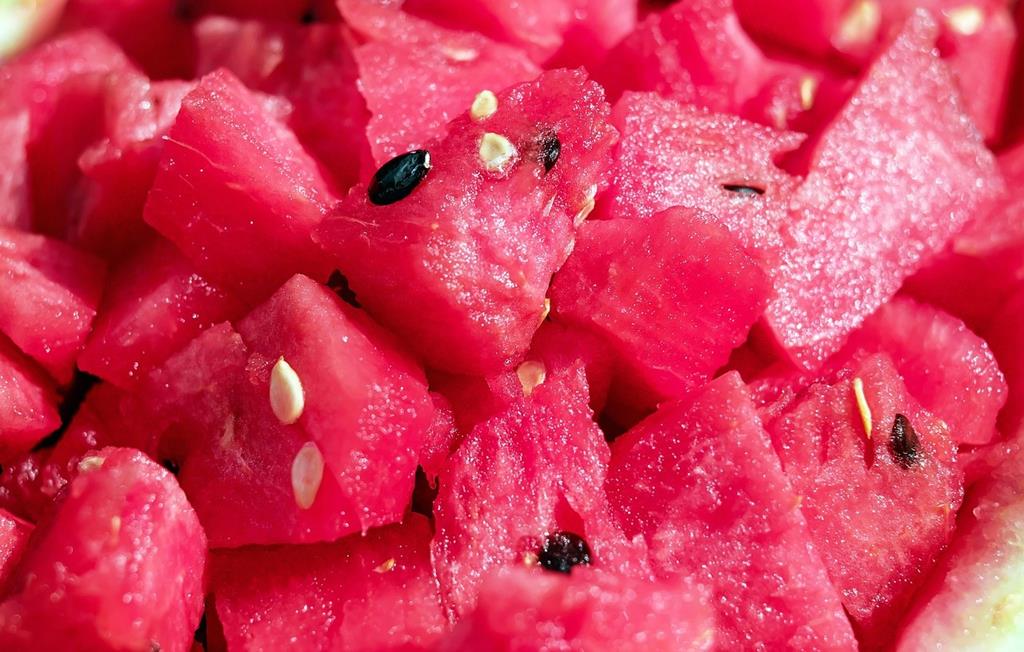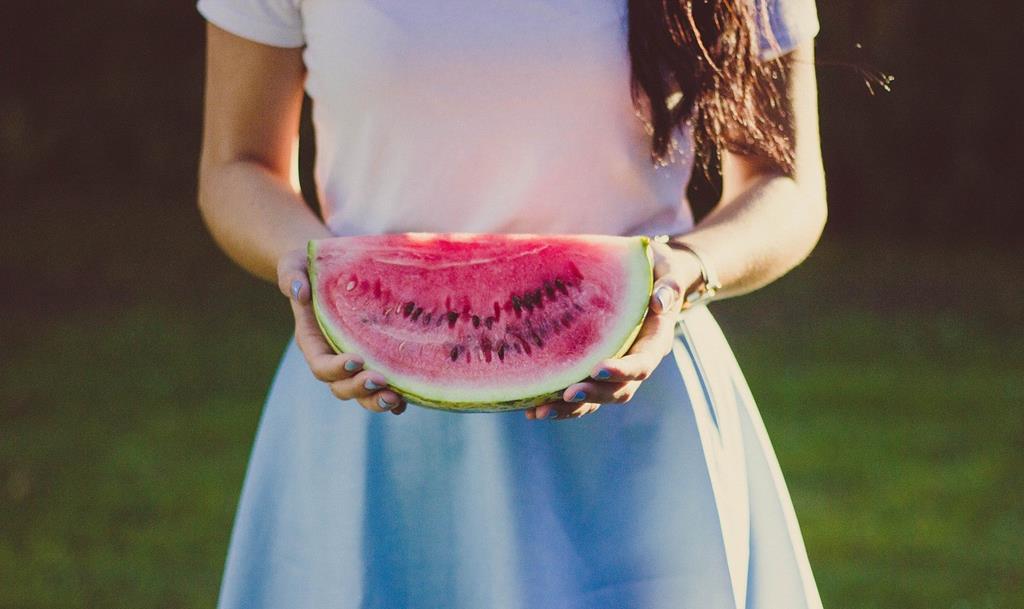Cats have a reputation for being picky eaters, and their dietary needs primarily revolve around animal-based proteins. However, as cat owners, we may wonder about the safety and suitability of sharing some of our favorite fruits with our feline companions. One common query is whether cats can eat watermelon. In this article, we will explore whether it is safe for cats to consume watermelon, potential benefits, and the considerations to keep in mind when offering this juicy fruit to your beloved cat.
Can Cats Eat Watermelon?
Yes, cats can eat watermelon in moderation. Watermelon is generally non-toxic to cats and can be a safe and refreshing treat when offered responsibly. However, it is essential to be mindful of several key factors before sharing watermelon with your feline friend.
Benefits of Feeding Cats Watermelon
- Hydration: Watermelon has a high water content, which can help contribute to your cat’s overall hydration, particularly during warm weather.
- Vitamins: Watermelon contains vitamins A and C, which can be beneficial for a cat’s immune system and overall health.
- Dietary Fiber: Watermelon provides dietary fiber, which can aid in digestion and promote regular bowel movements.
- Low in Calories: Watermelon is relatively low in calories, making it a light and healthy snack option for your cat.
Precautions When Feeding Cats Watermelon

While watermelon can offer certain benefits, it’s essential to exercise caution and consider the following precautions:
- Small Portions: Offer watermelon in small, bite-sized pieces. Cats have small mouths, so it’s best to slice or dice the watermelon into manageable pieces.
- Seedless and Rind-Free: Remove all seeds and the tough outer rind of the watermelon before giving it to your cat. The seeds can be a choking hazard, and the rind is difficult to digest.
- Plain and Unseasoned: Serve watermelon plain and unseasoned. Avoid adding any seasonings, sauces, or spices, as these can be harmful to cats.
- Allergies and Digestive Sensitivities: Some cats may be sensitive to new foods, including watermelon. Watch for any signs of allergies or digestive upset, such as vomiting or diarrhea, after introducing watermelon into your cat’s diet.
- Moderation: Watermelon should be considered an occasional treat, not a regular part of your cat’s diet. While it offers hydration and some vitamins, it should not replace essential sources of animal-based protein in a cat’s nutrition.
- Sugar Content: Watermelon, like many fruits, contains natural sugars. Excessive sugar consumption can contribute to weight gain and dental issues in cats. Limit the amount of watermelon you offer to prevent overconsumption of sugar.
- Consult Your Vet: If your cat has specific dietary requirements, health concerns, or allergies, it’s advisable to consult with your veterinarian before introducing watermelon or any new food into their diet.

Are watermelon seeds safe for cats?
Watermelon seeds are generally not safe for cats. While a few seeds are unlikely to cause immediate harm, consuming a significant quantity of seeds can lead to digestive problems or even intestinal blockages, especially in smaller cats or kittens. To ensure your cat’s safety, it’s best to remove all seeds from any watermelon you offer to your cat.
Additionally, it’s a good practice to feed your cat only the flesh of the watermelon in small, manageable pieces as an occasional treat rather than a regular part of their diet. Always monitor your cat for any adverse reactions when introducing Watermelon. If you suspect your cat has ingested a large number of watermelon seeds or is experiencing digestive issues, consult your veterinarian.
Is watermelon juice safe for cats?
Watermelon juice is generally not recommended for cats. While small amounts of plain, unsweetened watermelon juice might not be immediately harmful in most cases, it’s important to consider a few factors:
Sugar Content: Watermelon juice contains natural sugars. Cats do not have a strong taste for sweets, and their digestive systems are not well-suited to process sugar. Excessive sugar consumption can lead to digestive upset and obesity in cats.
Hydration: While watermelon is hydrating due to its high water content, the juice form may not provide the same hydration benefits as plain water. It’s important to ensure your cat has access to fresh water at all times to meet their hydration needs.
Flavorings and Additives: Many commercially available watermelon juices may contain additives or flavorings that could be harmful to cats. Always check the ingredients label to ensure it’s pure, unsweetened watermelon juice if you intend to offer it to your cat.
Monitoring: If you decide to offer a small amount of watermelon juice as an occasional treat, closely monitor your cat’s reaction. Some cats may not like the taste, while others might tolerate it well. If your cat experiences any adverse reactions, such as digestive upset or diarrhea, discontinue offering watermelon juice.
In general, it’s safer to provide your cat with plain water to ensure proper hydration. If you’re looking for a treat, small pieces of fresh, seedless watermelon are a better option. Always consult your veterinarian before introducing new foods or beverages into your cat’s diet, especially if your cat has any underlying health conditions.
Can cats eat watermelon rind?
Cats should not eat watermelon rind. The tough, outer rind of a watermelon can be challenging for cats to digest and may lead to digestive issues or potential blockages in their gastrointestinal tract. While the flesh of the watermelon in small, seedless pieces can be offered to cats as an occasional treat, it’s best to avoid giving them the rind altogether.
When feeding your cat watermelon, always ensure that you provide them with only the edible, fleshy part of the fruit and remove any seeds and the rind to minimize the risk of digestive problems or choking hazards. Additionally, remember that watermelon should only be given in moderation and should not replace your cat’s regular diet. Always monitor your cat’s reaction when introducing Watermelon and consult your veterinarian if you have any concerns.
FAQ about whether cats can eat watermelon:
Can cats eat watermelon at all?
Cats can consume watermelon in small quantities. However, it’s important to feed them small, seedless pieces and remove the rind to ensure their safety.
Why might I want to give my cat watermelon?
Watermelon contains water and is hydrating, which can be beneficial for cats, especially during hot weather. It also provides some vitamins and minerals.
How should I introduce watermelon to my cat’s diet?
Start by offering a tiny piece of plain, seedless watermelon. Observe how your cat reacts and ensure they don’t have any adverse reactions. If they enjoy it and tolerate it well, you can offer small, occasional pieces as a treat.
Are there any potential risks associated with feeding cats watermelon?
While small amounts of watermelon are generally safe, too much can lead to digestive upset, including diarrhea. Additionally, the high sugar content in watermelon can be a concern for cats with diabetes or weight issues, so it’s important to monitor their intake. Always consult your veterinarian if you have concerns about introducing Watermelon into your cat’s diet.
Conclusion
In conclusion, cats can safely eat watermelon as an occasional treat. When offered responsibly and with attention to the precautions mentioned above, watermelon can provide a refreshing change and hydration in your cat’s diet. However, always prioritize your cat’s overall well-being and dietary needs when introducing new foods. By offering watermelon mindfully and considering your cat’s unique preferences and sensitivities, you can provide a well-rounded and enjoyable diet that aligns with their natural inclinations.



